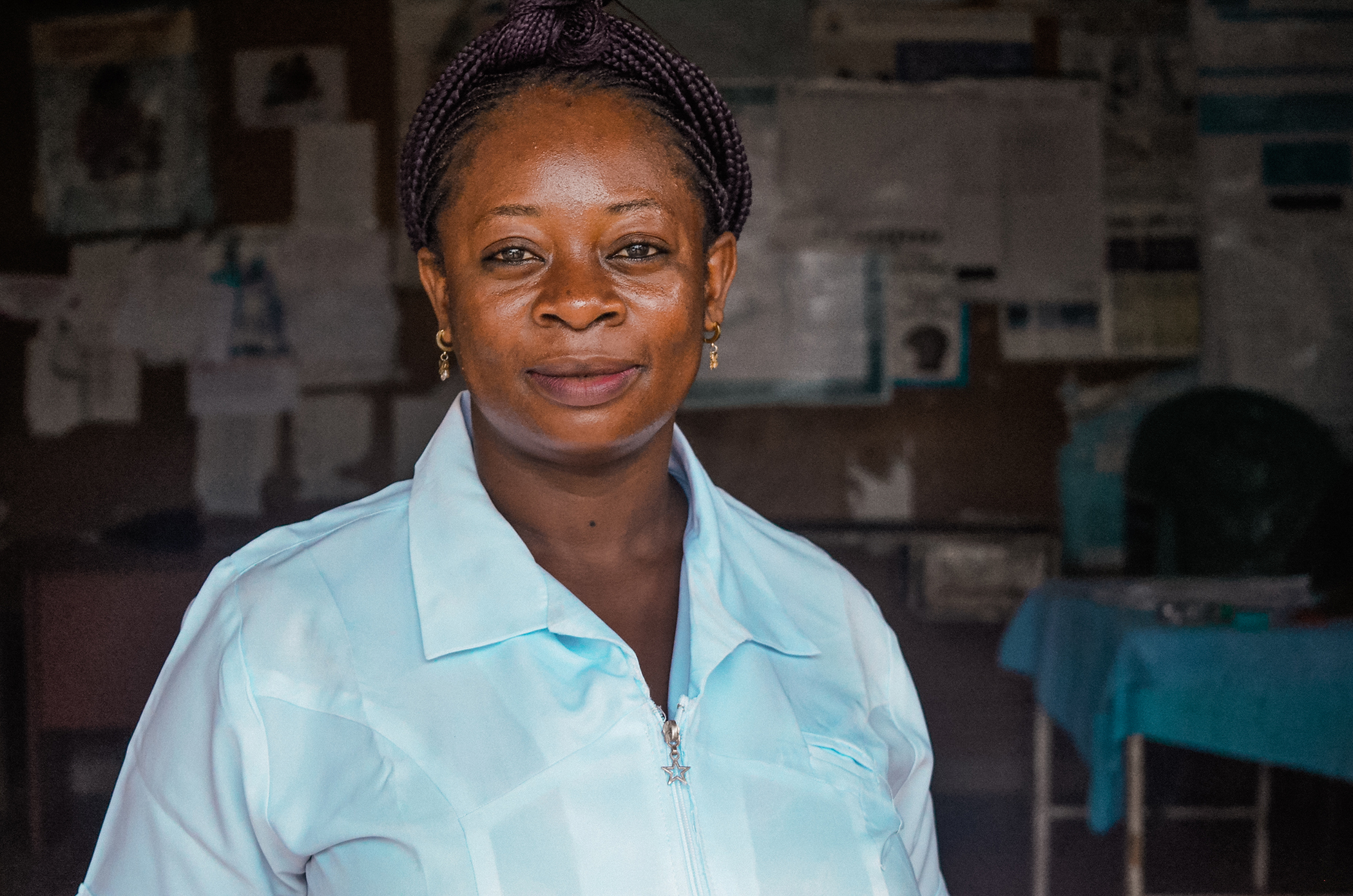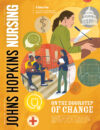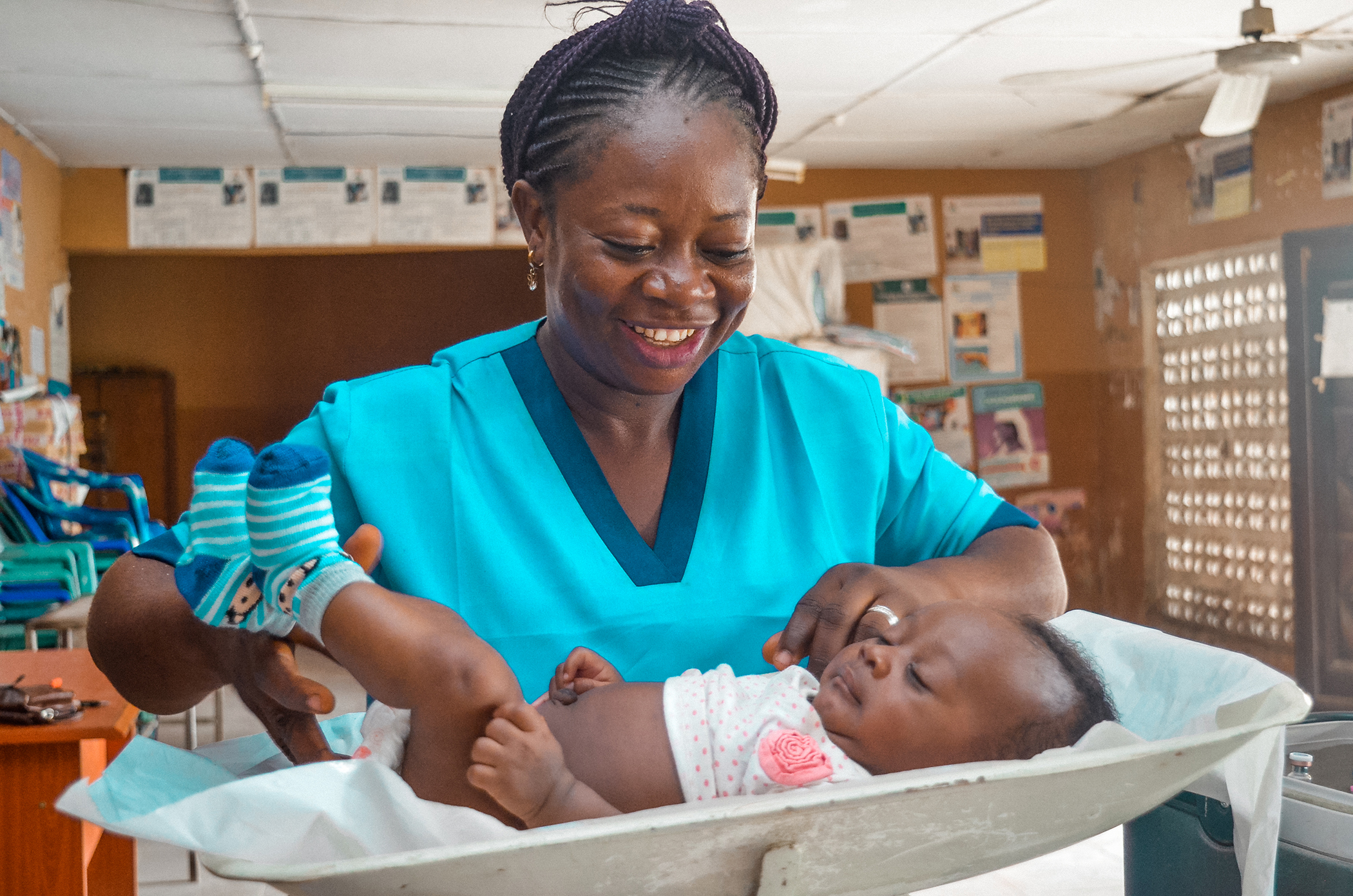By Katherine Seaton
As the primary health care provider in her farming town in southern Nigeria, nurse Edith Nkah Okoro is all things to all people. Edith and her two colleagues meet clients in their homes or in her health facility to make sure they receive the care they need, fostering relationships that are long-lasting and quite often, life-saving.
When pregnant women arrive at the health facility for antenatal care, Edith screens them for malaria, HIV, and hypertension as part of her duties.
When a woman in labor can’t get to the facility, Edith rushes to her home to help her deliver.
When a mother comes in with a child who is vomiting and has diarrhea, Edith treats the child and then starts prevention outreach in her community.
When a couple trying to plan their family has questions, Edith counsels them and shares the range of contraception options.
Routine care. Community health education. Outbreak and emergency response. That’s primary health care in Ivo, the last local government area of Ebonyi State in southern Nigeria. Primary health care is the path to achieving health for all (Universal Health Coverage), and nurses in local health centers are leading that care.

“Access to health care is poor and very difficult,” says nurse Edith. “I do this work because of the transformation I see in my patients. So we mobilize health care to take the services to them.”
To stay up to date on evidence-based care and best practices to serve her community, Edith has participated in Jhpiego-led specialized training and supportive supervision and mentorship opportunities. One such training opportunity changed her approach to care for women who’ve experienced gender-based violence.
“Jhpiego opened my eyes to the world of gender-based violence [GBV] as a public health challenge,” she says. “Now, we provide survivor-centered services including screening, identification, and linking clients with the local gender-based violence task force.”
Edith spends many of her days traveling throughout Ivo sharing with other health workers what she’s learned through Jhpiego’s trainings. “I do both clinical and coordination duties,” she says. “That includes supportive supervision at other facilities, training community health extension workers, and providing oversight as the focal person for other technical areas.”
Recently, one such client was a young pregnant woman Edith met while doing outreach. The woman walked with her hands because polio had weakened the muscles in her legs. “I offered her an HIV test and she tested positive,” says Edith. The woman confided in Edith that she wanted this pregnancy because in Ebonyi culture, when a woman dies unmarried and without a child, she is buried outside the family compound. “At the beginning I was a bit concerned, looking at the woman’s disability and health situation, but I [chose] courage and continued,” the nurse says.
Edith followed up, reminding the woman of appointments and ensuring she was adhering to drugs. It was the respectful, stigma-free care the woman needed. She had a healthy and uneventful delivery and her newborn baby boy was HIV negative.
“I feel I made a difference in her life because I was able to walk her through everything,” says Edith. “I mean, see how the little things we do turn out to having a great outcome and affect someone’s life positively?”
Photo by Moses Ameh Adejo, senior graphics and communications officer for Jhpiego in Nigeria.

